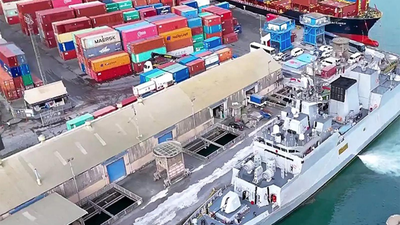Regulatory shift: India withdraws QCOs on key raw materials; GTRI warns of import-surge risks

 The withdrawal, notified on November 13, eliminates mandatory BIS certification for 14 products under the Chemicals & Petrochemicals Ministry and six under the Mines Ministry.
The withdrawal, notified on November 13, eliminates mandatory BIS certification for 14 products under the Chemicals & Petrochemicals Ministry and six under the Mines Ministry.
The list includes widely used inputs such as PTA, MEG, polyester fibres, polypropylene, polyethylene, PVC resin, ABS, polycarbonate, and metals such as aluminium, lead, nickel, tin and zinc.The reforms flow from the Gauba Committee’s findings, which noted that QCOs grew from fewer than 70 a decade ago to nearly 790, many covering raw materials without direct safety implications.
Industry groups had long argued that mandatory certification on industrial inputs created delays, raised costs and often did not enhance product quality.According to GTRI, the rollback will immediately ease sourcing pressures in textile hubs like Surat, Ludhiana, Tiruppur and Bhilwara, and among plastics processors, nearly 90% of whom are MSMEs.
Earlier requirements led to long queues at BIS labs, port detentions and demurrage charges, frequently crippling small units.Exporters are also expected to benefit as easier access to globally certified intermediates improves competitiveness in technical textiles, moulded plastics, engineering goods and synthetic garments.The withdrawal of QCOs for metals such as aluminium, zinc, lead, nickel and tin restores supply flexibility for downstream sectors including auto components, electronics, batteries, construction and defence.
India has no primary nickel production, and limited domestic output in several specialised grades, meaning the earlier regime risked choking critical imports.That relief, however, comes with a caution.
GTRI says MSMEs are now looking for similar reforms in steel, where QCOs continue to distort availability and pricing.
In stainless-steel flats, for example, domestic capacity remains inadequate, while foreign suppliers stay away from BIS certification due to cost and scale constraints.
Other product lines — including fasteners, auto hinges and telescopic channels — face comparable bottlenecks, with small manufacturers alleging that current rules favour a handful of large players.GTRI also flags the need for “daily monitoring” of import trends to prevent the absence of QCOs from becoming an opportunity for dumping low-grade or excess stocks into India.
If injury is detected, policymakers may need to rely on anti-dumping duties, safeguard actions or tariff-rate measures to protect domestic producers.The think-tank added that while the government’s decision marks a major, globally aligned shift — removing QCOs where they add friction rather than safety — strong surveillance architecture will be essential to ensure MSMEs remain shielded and competition stays fair.



